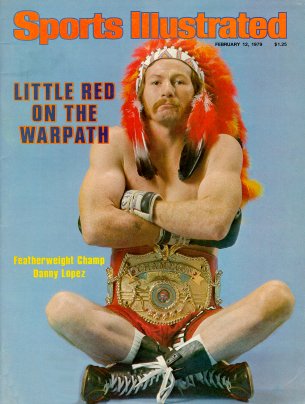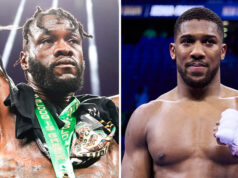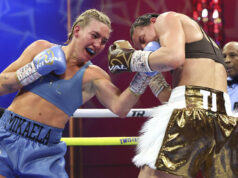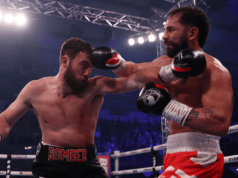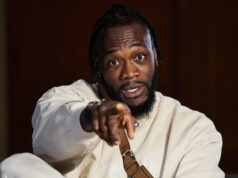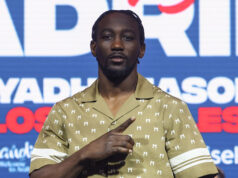Top Fighters of the 1970s: Los Angeles
I love LA. No, that’s not just a catchy hook from the Randy Newman song that has been overused in every movie set in the south half of “The Golden State” for nearly thirty years. I actually love the city of Los Angeles. As a boxing fan, and a perennially pasty citizen of the East Coast, it’s hard not to love the town. Close enough to Vegas to make for a memorable fight weekend, far enough away from your actual life to allow you to pretend you’re part of some reality star’s entourage, Los Angeles is all you expect it to be and, perhaps, even more.
The land that gave us Oscar De La Hoya (he was a boxer once, you know) and was the training ground for guys like Shane Mosley (him, too) has a rich and storied history in the sport. In the 1970s, as is the case today, LA was a hotbed for lower weight-class talent.
5. Alberto Davila (56-10, 26 KOs), Bantamweight
Achievements: Won two title eliminator matches in the decade; finished ‘70s with 35-6 record
Why He’s On This List: Davila was a hard-working Bantamweight with championship goals and, seemingly, the talent to match. He came close on two occasions in the decade, losing in a WBC title match to Carlos Zarate and, later, with the WBA strap on the line against Joge Lujian. Davila had quick hands and good boxing sense, with a relatively high knockout percentage (46%) for a Bantamweight. Davila would go on to win WBC gold in the 1980s and defend it for over three years before injuries derailed his career. Although not a titlist until a decade later, Davila’s most prolonged success, and why he should be considered a pillar of the great fighting history of LA, came in the ‘70s.
4. Joey Olivo (39-8, 11 KOs), Light Flyweight
Achievements: NABF Light Flyweight title (1979)
Why He’s On This List: A fighter’s fighter, Olivo was as dominant as they came in the Flyweight and Light Flyweight division. In workingman’s fashion, Olivo worked his way through the ranks of the division, taking on all comers in the ‘70s. Fittingly, Olivo nearly finished the decade with a perfect record, and few Flyweights, if any, deserved it more. Fighting twenty-three times from his debut in 1976 through the end of the decade, Olivo went an impressive 22-0, capturing the NABF Light Flyweight title in the process from Lupe Madera. It wasn’t until November 1979 that Olivo suffered his first, and only, defeat of the ‘70s losing the title on points to Martin Vargas, a Chilean, in Chile.
3. Carlos Palomino, (31-4-3, 19 KOs), Welterweight
Achievements: WBC Welterweight title (1976); 2004 inductee in International Boxing Hall of Fame
Why He’s On the List: Upon turning pro in 1972, the Army-trained Palomino immediately started off on the path of a boxer willing to out-work an opponent regardless of the style. His versatility and ability to steal rounds made him a favorite in the greater Los Angeles community. It wasn’t until the mid-‘70s that Palomino developed an ability to consistently look for the knockout as opposed to out-pointing his opponents. While the power game was never his forte, Palomino was comfortable throwing punches and looking for the quick win. In 1976, Palomino captured the WBC Welterweight via a twelfth round TKO of John Stracey, embarking on two-and-a-half year reign as champion. After losing the title to Wilfred Benitez, Palomino took on Robert Duran (then 67-1) to close out the decade. A loss to Duran effectively ended Palomino’s career, save for a handful of matches in the 1990s.
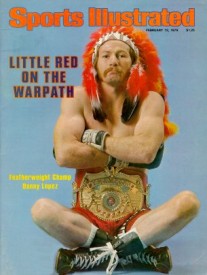 2. Danny “Little Red” Lopez, (42-6, 39 KOs), Featherweight
2. Danny “Little Red” Lopez, (42-6, 39 KOs), Featherweight
Achievements: WBC Featherweight title (1976); 2010 inductee in International Boxing Hall of Fame
Why He’s On The List: Half of one of the more dominant brother tandems (with Ernie) of the decade, Lopez finished the decade with an impressive 42-3, including an impressive three-plus year stint at WBC Featherweight champion. Most impressive of his early run would be the fact that Lopez not only went 21-0 in his first twenty-one fights, but the Featherweight did so by knocking out his opponent in each of those bouts. In fact, aside from an unusual eight-month stretch that saw Lopez lose three out of four fights—including one to fellow list member Bobby Chacon—few had a more impressive decade than “Little Red.” Lopez would not lose again until the dropping his final two bouts as a full-time fighter in 1980 and one ill-advised comeback match in 1992.
1. “Schoolboy” Bobby Chacon, (59-7-1, 47 KOs), Super Featherweight
Achievements: WBC Featherweight title (1974); 2005 inductee in International Boxing Hall of Fame
Why He’s On This List: “Schoolboy” is as known for his impressive ascent to the WBC Featherweight title and an astounding 42-3-1 record in the decade as he is for the tragic undertones of his career and the wasted opportunity to be considered an all-time great. Winner of his first nineteen bouts, Chacon seemed poised for a very long and prosperous run atop the rankings. One year and nineteen (yes, that’s right) fights into his career, Chacon had his first title shot against then-champion Reuben Olivares. Although he failed to capture the championship, Chacon drew the attention of fans and analysts, earning a later shot at the WBC Super Featherweight title one year later. Unfortunately, with fame came temptations, which ultimately became too much for Chacon to handle. Although he would go on to compete for another fourteen years, and enjoy some success through the 1980s, Chacon was never quite the same dominant force.


